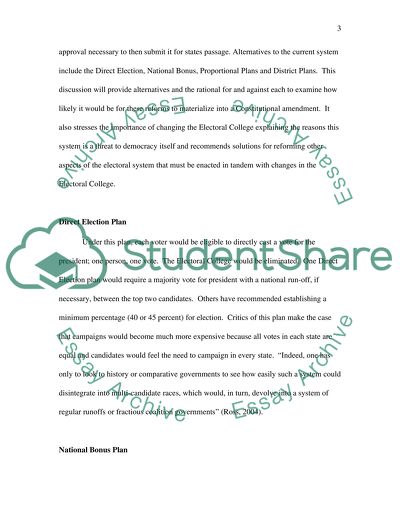Cite this document
(The Antiquated Electoral College Essay Example | Topics and Well Written Essays - 1750 words, n.d.)
The Antiquated Electoral College Essay Example | Topics and Well Written Essays - 1750 words. https://studentshare.org/law/1545731-question-tearing-down-the-foundation-or-the-institution-of-the-electoral-college-from-american-politics-will-create-room-for-a-much-better-and-healthier-democracy-what-is-your-take-on-this
The Antiquated Electoral College Essay Example | Topics and Well Written Essays - 1750 words. https://studentshare.org/law/1545731-question-tearing-down-the-foundation-or-the-institution-of-the-electoral-college-from-american-politics-will-create-room-for-a-much-better-and-healthier-democracy-what-is-your-take-on-this
(The Antiquated Electoral College Essay Example | Topics and Well Written Essays - 1750 Words)
The Antiquated Electoral College Essay Example | Topics and Well Written Essays - 1750 Words. https://studentshare.org/law/1545731-question-tearing-down-the-foundation-or-the-institution-of-the-electoral-college-from-american-politics-will-create-room-for-a-much-better-and-healthier-democracy-what-is-your-take-on-this.
The Antiquated Electoral College Essay Example | Topics and Well Written Essays - 1750 Words. https://studentshare.org/law/1545731-question-tearing-down-the-foundation-or-the-institution-of-the-electoral-college-from-american-politics-will-create-room-for-a-much-better-and-healthier-democracy-what-is-your-take-on-this.
“The Antiquated Electoral College Essay Example | Topics and Well Written Essays - 1750 Words”. https://studentshare.org/law/1545731-question-tearing-down-the-foundation-or-the-institution-of-the-electoral-college-from-american-politics-will-create-room-for-a-much-better-and-healthier-democracy-what-is-your-take-on-this.


